For Lovers of Books and Reading
While writers are busy in workshops learning how to create dialogue or write a book proposal, you avid readers are invited to enjoy your very own series of presentations designed especially for lovers of books and literature.
These programs will take place in the Real de Minas ballroom in the mornings at 9:00 and 10:45, except for the first one which will take place on Wednesday afternoon.
Each program is $30, or the entire series is available for a reduced series price of $195.
The Joys of Mayan Poetry: Ancient and Contemporary
W17 Wednesday, February 12 3:30–5:00 p.m.
With Michael Bazzett
Our discussion, which will be full of examples and snippets of delightful work in translation, will illuminate how reading the poetry of the Maya, both ancient and contemporary, can cleanse our eyes and refresh our relationship with language. We’ll begin with the ancient Mayan creation epic, “The Popol Vuh,” and then vault forward into the 20th century to the work of Humberto Ak’abal, an indigenous K’iche’ writer from the highlands of Guatemala.
How the Light Gets In: Leonard Cohen’s Artistic Practice as Songwriter, Poet, and Novelist
W27 Thursday, February 13 9:00–10:30 a.m.
With Amy Gottlieb
While Leonard Cohen is best known for his iconic songs, his poetry and fiction also shed light on his obsessions and influences. In this discussion, we’ll unpack selected song lyrics, poems, and prose, exploring how this beloved songwriter transcended boundaries of genre to deepen his artistic practice over a lifetime. We’ll work from a handout with lyrics, poems, and novel excerpts, inviting a discussion of how Cohen’s work in all these genres shaped his most iconic songs.
Transformative Eco-Poetry by Joy Harjo and Craig Santos Perez
W37 Thursday, February 13 10:45 a.m.–12:15 p.m.
With Cheryl J. Fish
In this presentation, we’ll explore the powerful ecological and indigenous contexts of poets Joy Harjo, U.S. Poet Laureate; member of the Mvskoke Nation; and former SMWC keynote speaker; and Craig Santos Perez, a native Chamoru (Chamorro) from the Pacific Island of Guåhan/Guam. Both poets meld experience with their ancestry, geographical situatedness, and spiritual and ecological accountability. With startling language and poetic magic that enlarges our relationship to plants, animals, and land, these poets have us reconsider assumptions.
John Steinbeck: An American in Mexico
W47 Friday, February 14 9:00–10:30 a.m
With Susan Shillinglaw
John Steinbeck’s writings often explored cultural differences be- tween the U.S. and Mexico. Over a third of his work is either about Mexico or includes Mexican characters, such as his 1935 novel Tortilla Flat. Steinbeck poses interesting questions about cultural engagement: from his 1940 trip to Baja with marine bi- ologist Edward F. Ricketts, Sea of Cortez (1940), to three films he worked on, all located in Mexico: The Forgotten Village (1940), La Perla (1947), and Viva Zapata! (1952). We will explore Steinbeck’s fascination with Mexico.
How We Became a Nation of Foodies
W57 Friday, February 14 10:45 a.m.–12:15 p.m.
With Ruth Reichl
Reichl has been called the Zelig of food. When Berkeley, California was becoming the gourmet ghetto in the early seventies, she was there. She moved to Los Angeles just in time to chronicle the creation of California Cuisine, and she was in New York as America discovered the joys of ethnic foods. Ruth Reichl has lived America’s food journey, and she explores it all from a very personal perspective.
How San Miguel Became an Arts Community
W67 Sunday, February 16 9:00–10:30 a.m.
With Mamie Spiegel
What brought hundreds of aspiring artists, young and old, to a tiny, little-known town in the remote mountains of Mexico in the second half of the 20th century? Why San Miguel de Allende? What was the magnet that transformed the village into a major center for the arts? We will learn how three men—a Mexican, a Peruvian, and an American—founded an art school that drove the dynamic for enriching the town. Mamie Spiegel, a gifted storyteller, will share her fascinating stories.
Reading Through the Literary Kaleidoscope: Novels with Rotating Perspectives
W77 Sunday, February 16 10:45 a.m.–12:15 p.m.
With Rita Rosenkranz
Reading a novel masterfully written from the perspectives of multiple family members can feel like piecing together a puzzle that parallels the complex reality of life. In this workshop, we’ll cover several contemporary novels that enable us to learn about the complex ecosystem of a family through its multiple subjects. As readers, we’ll learn how to hone our appreciation for stories that share perspectives within marriages, through generations, across borders, and even into the future.
